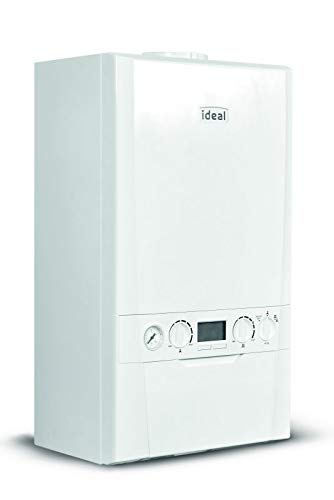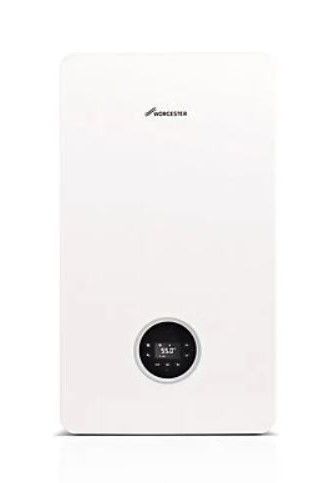Biomass boiler vs gas boiler: How do the two options compare?
We look at the cost, ease of installation and eco-credentials of these two heat sources, among other factors, to see how they compare
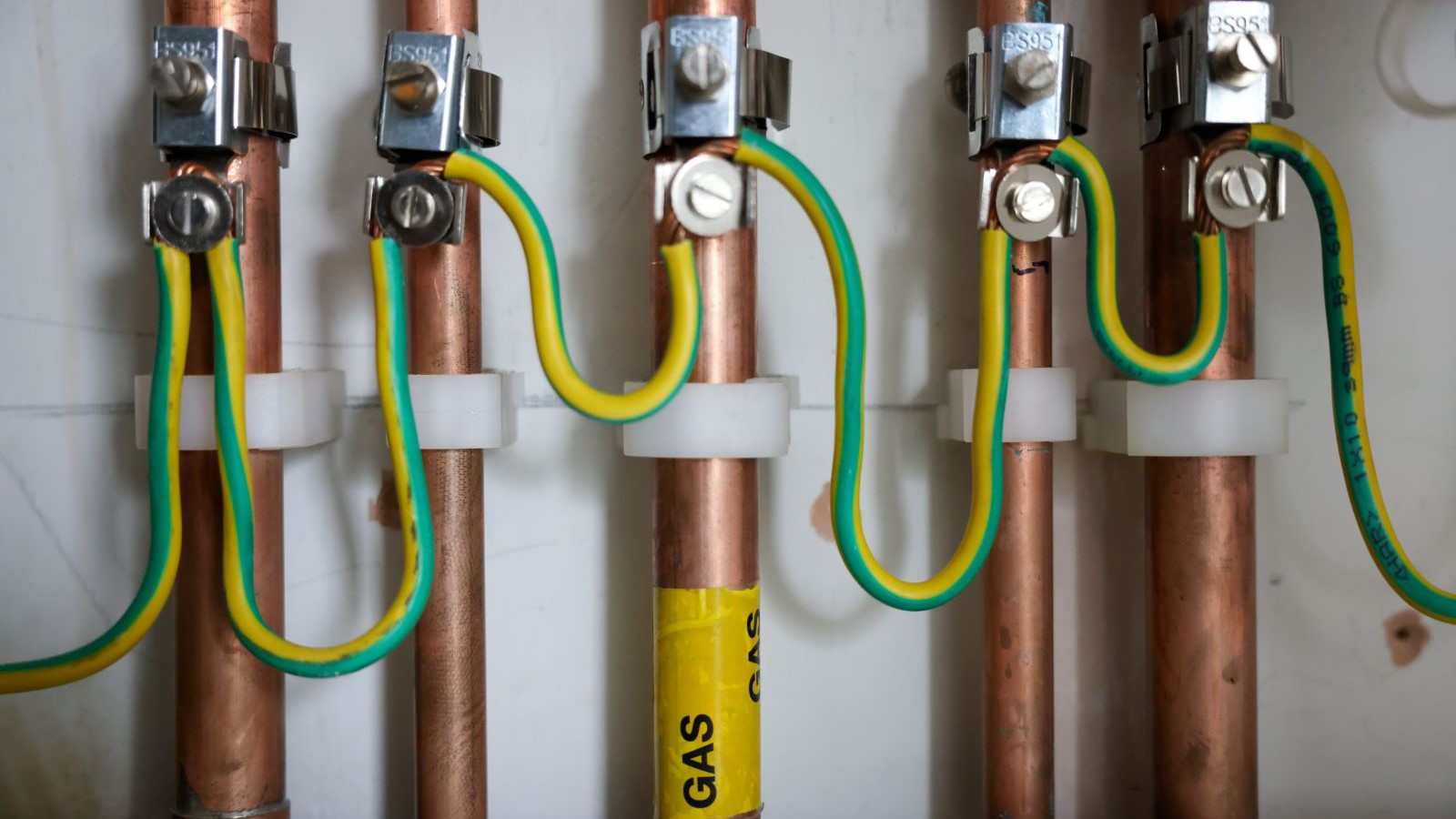
If you are making a decision between installing a biomass boiler or a more conventional gas boiler for your central heating system, there are many factors to consider.
Cost is perhaps top of the list, but there are other important factors too. While the initial outlay of a biomass boiler will be substantially more, long term it could be a prudent investment with a gas boiler ban on the horizon. Offset that with a government grant towards installation plus carbon neutral gains and the scales start to tip.
But gas boilers shouldn't necessarily be dismissed entirely. There can be a lot of disruption adding a biomass boiler to your home, and sometimes your property might not be suitable. Here we explain the benefits and disadvantages of each system, so that you can decide which type of system is right for you.
Biomass boiler vs gas boiler: An overview
The main advantage with gas boilers is that they burn fuel efficiently. However, unlike biomass boiler fuel, they release extra carbon emissions into the atmosphere and thus exacerbate global warming.
“A biomass boiler generally uses wood pellets and is deemed as being more or less a carbon neutral appliance, as the C02 created when the appliance is in operation is balanced out by the growing of new plants and trees that absorb C02,” says Martyn Bridges, Director of External Affairs at Worcester Bosch.
However, the difference in size, how they are installed and how the fuel is supplied also needs to come into consideration when weighing up the pros and cons of biomass boilers vs gas boilers.
“Biomass boilers are bigger than a gas boiler, and you need a clean, dry space for the storage of the fuel. If you don’t use an automatic fuelling system then you will need to load fuel manually into the appliance," explains Martyn Bridges.
"Gas fired appliances are smaller, come in combi, regular and system versions and are wall hung and compact. They are also fully automatic with no manual intervention needed and of course no storage space for fuel being necessary.”
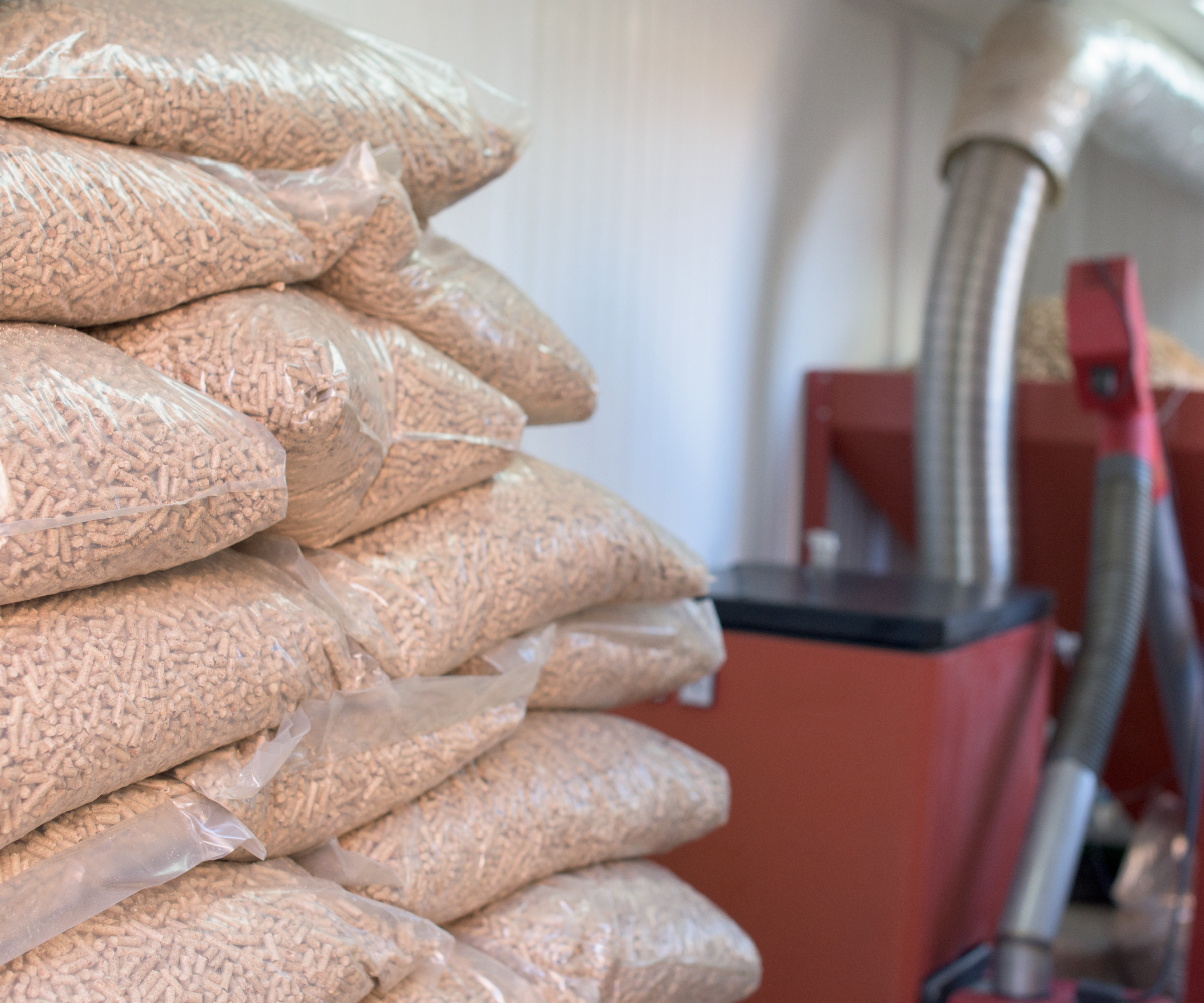

Martyn Bridges has over 40 years of experience in the heating industry, previous appointments including chair of the Technical Panel for the HHIC and a member of the board at OFTEC, CIPHE and the Hot Water Association. He has appeared in numerous national media publications discussing net zero heating and was a key figure in the development of the award-winning Worcester Bosch 100% hydrogen boiler prototype.
Purchase and installation costs
Biomass boiler costs are considerably more expensive than gas boilers. How much a new gas boiler costs is between £1,000 and £3,750, whereas a manually-fed biomass boiler will cost between £4,000 and £10,000, and an automatically fed biomass boiler (with a hopper) will cost £9,000 and £21,000. This means that the difference in the initial cost between the two types of heating system is considerable.
Biomass boilers are “around three times the cost of a gas fired boiler system but they are eligible for funding from the Boiler Upgrade Scheme under certain conditions,” adds Martyn Bridges.
Meanwhile, Pete Downes, managing director of Commercial Biomass Ltd explains that biomass boiler costs do vary depending on which of the three type of biomass boiler you use: log, wood chip or pellet.
"Log boilers are the cheapest to buy and the fuel is widely available, but they need fuelling once a day, sometimes twice in very cold weather. The reason for this is they are what’s called batch burners, meaning they burn the whole contents of the boiler and transfer the heat into water that is stored until you need it in the buffer," he explains.
"Chip boilers tend to be used by people with outbuildings, space to dry and season their own logs as fuel, and space to house the boiler and chip store. The chip store is usually a minimum of 3m2, with the aim usually to build a store big enough to house a month’s worth of fuel. The main problem with these boilers is contaminants in the fuel getting stuck in the boiler mechanisms.
"The other option is a slightly bigger boiler," he says, "with a hopper on the boiler that you feed with pellets. Cheap models will only hold enough to last a day at best. Slightly more expensive models have big enough hoppers to last a fortnight."

Pete Downes served an apprenticeship with a then FTSE100 HVAC and mechanical services company. Pete has been involved in the design and fitting of the ETA biomass heating systems in many contracts, and enjoys working with clients to achieve the installation to suit their needs.
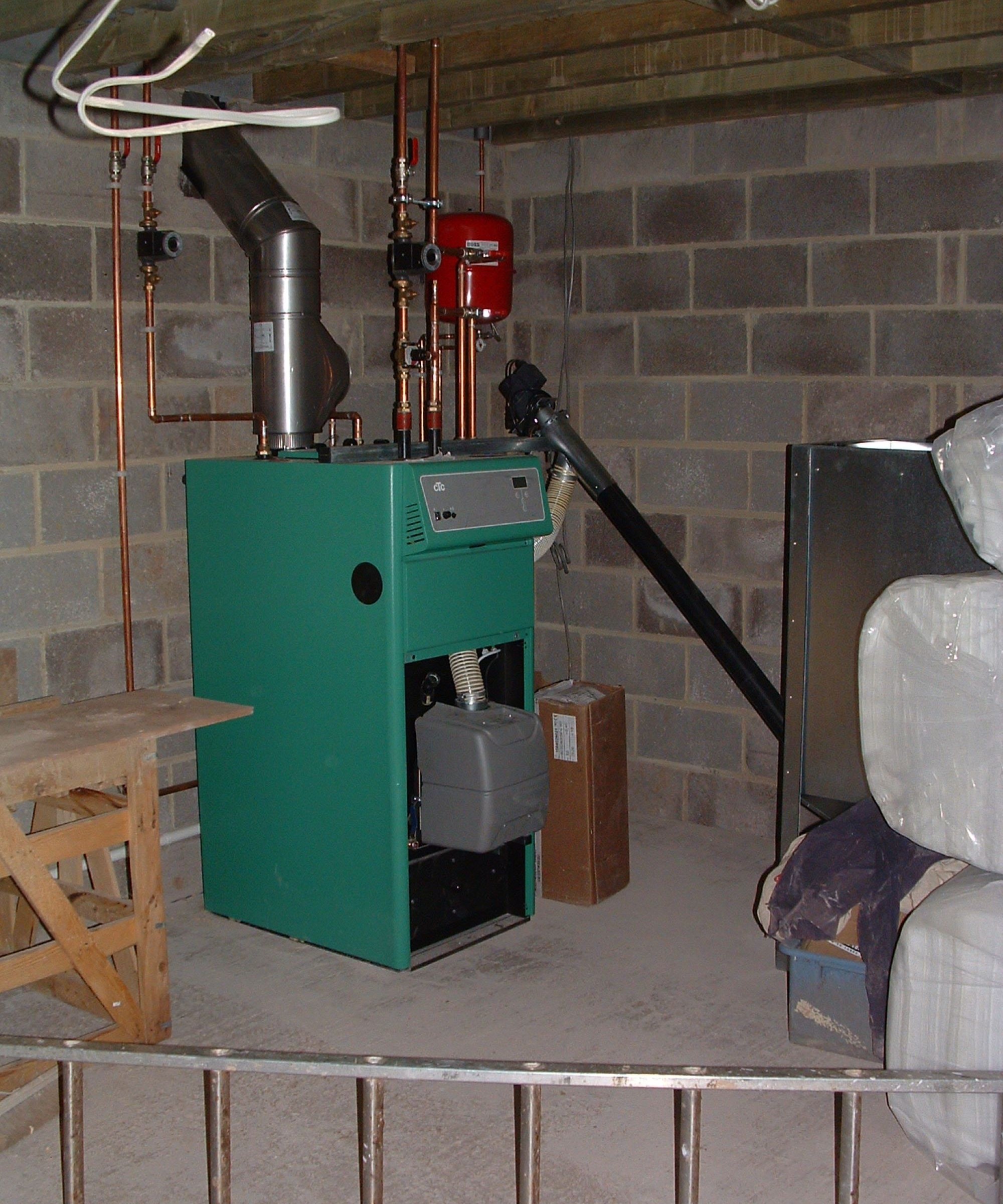
Running costs
The difference in cost between a gas boiler and a biomass boiler begins to work out in favour of biomass when the fuel costs are taken into consideration over the long term. Biomass fuel, consisting of wood chips, pellets and logs, is generally cheaper than gas, especially given that the world wholesale price for gas is steadily rising, exacerbated particularly by the current war in Ukraine.
"Biomass running costs at the moment are around the same as oil, cheaper by quite a margin than gas, and cheaper by a large margin than electricity per kWh," says Pete Downes.
Gas fuel is more expensive than biomass fuel, at around 10.3 pence per kilowatt hour (kWh) compared to 7.9 pence per kWh for wood pellets.
If you know a farmer or landowner who is keen to dispose of wood waste, then the cost of the fuel for a biomass boiler can potentially become even lower than buying in supplies from a retailer. Furthermore, if you have access to a woodland area that can be exploited for free, then you might end up not having to pay anything at all for your biomass fuel.
Eco-credentials
Biomass boilers are carbon neutral because the fuel they use comes from plants, mostly wood, and usually in the form of wood chips, pellets or logs. Biomass boilers do still release emissions into the atmosphere, but these emissions only consist of the carbon that was absorbed by the tree anyway during its growing cycle. This means that there is a ‘like for like’ process going on.
However, gas boilers use natural gas, which is a fossil fuel. These boilers therefore release extra carbon into the atmosphere, and this, unlike the emissions from burning biomass, exacerbates man-made climate change (global warming), when gas boilers are operating. Given that over 80 percent of the heating systems in UK properties are gas boilers, this means that home heating in the UK accounts for around 15 percent of the country’s carbon emissions.
Furthermore, the biomass fuel used by biomass boilers can be replaced in the environment, simply by planting more trees, thereby absorbing more carbon from the atmosphere, whereas this is not possible with any technology that burns a fossil fuel. On top of this, the world is steadily running out of oil and gas anyway, as existing oil and gas fields become depleted (many of the world’s larger oil and gas fields have become depleted already), whereas trees can be replanted, thereby making more fuel available for biomass boilers.
For new build homes, the gas boiler ban means a gas boiler isn’t an option from 2025 because the government, keen to drive down UK carbon emissions, has ruled that gas boilers, or any fossil fuel heating system for that matter, can no longer be installed in new build homes.
This will still leave gas boilers in existing homes for many years to come, but for those homeowners who are unwilling to have them replaced by a renewable heating system such as biomass boilers, heat pumps or solar thermal, it is likely that the government will seek to replace the natural gas they burn with green hydrogen, which only releases water vapour into the atmosphere, not carbon emissions.
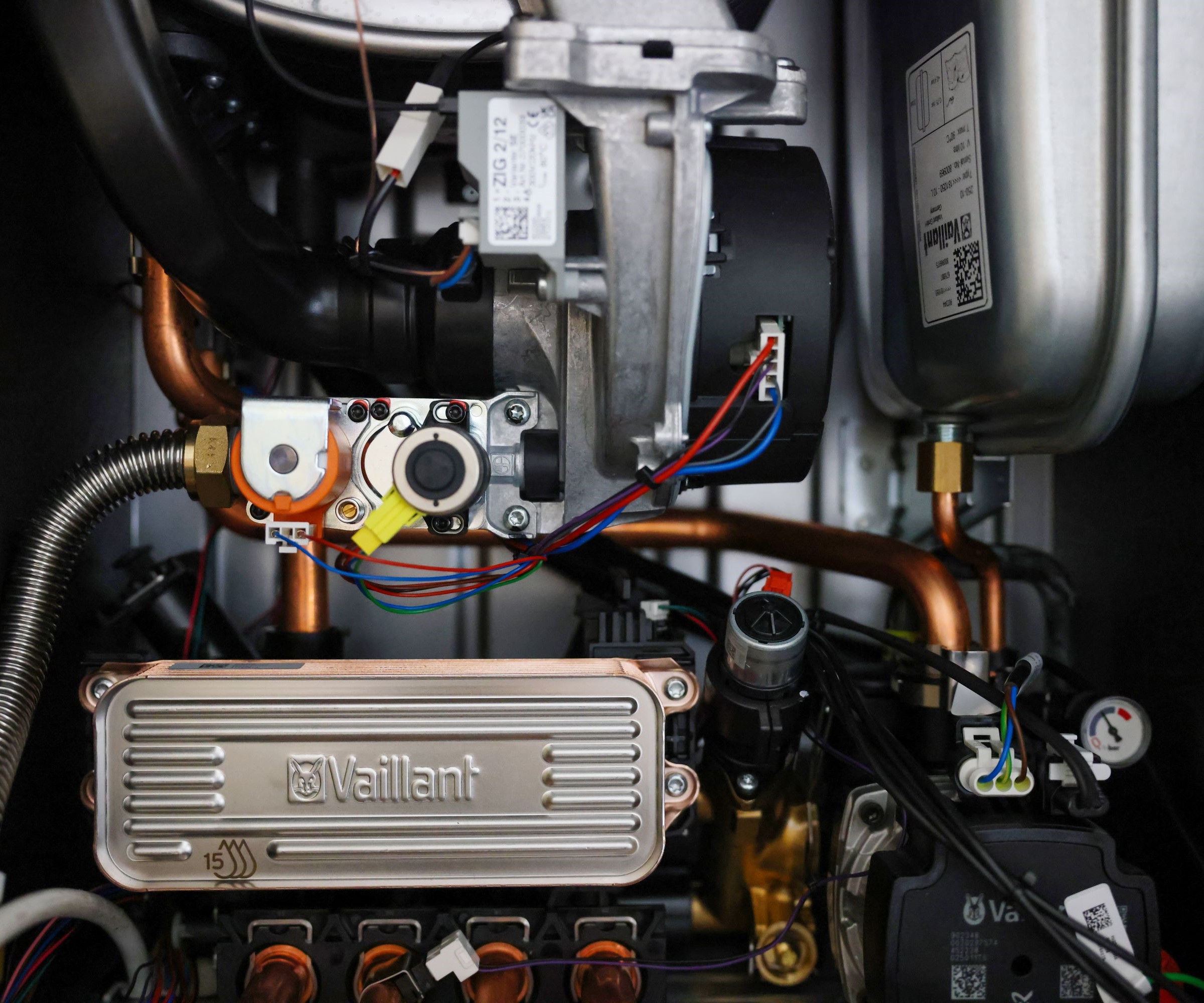
Ease of installation
The most commonly installed heating system in the UK is still the gas boiler, with plenty of choice with regard to available types and brands of boilers. Installation is usually a very straightforward affair, courtesy of a trained Gas Safe registered engineer and that in turn means that if your existing gas boiler urgently needs replacement, then the most affordable option is another gas boiler.
However, gas boilers can only be installed in those homes that are connected to the national gas network (the gas grid) unless you install a liquid petroleum gas (LPG) boiler, in which case the gas is stored on site rather than supplied through pipes from the gas grid.
Around 4.4 million homes in the UK, representing 15.1 percent of all domestic properties across the country, were not connected to the gas grid in 2021. This means those homes need to use alternative heat sources such as biomass boilers, air source heat pumps, ground source heat pumps, LPG or oil.
Biomass boilers work differently in that they aren't installed inside your home so while they can be suitable for most homes, you do need to have an external space where both the boiler and the fuel can be safely housed. They are also are much larger than gas boilers, meaning that they require more space.
For example, a gas boiler manufactured by Viessmann, the Vitodens 200-W boiler, measures 850 mm x 450 mm x 360 mm. In contrast, the Viessmann Vitoligno 300-C, burning wood pellets, measures 1250 mm x 850 mm x 770 mm. The Viessmann Vitoligno 300-C, another pellet-burning boiler equipped with a hopper (which stores the wood and then feeds it automatically into the boiler), measures 1539 mm x 1332 mm x 1224 mm.
Shop gas boilers
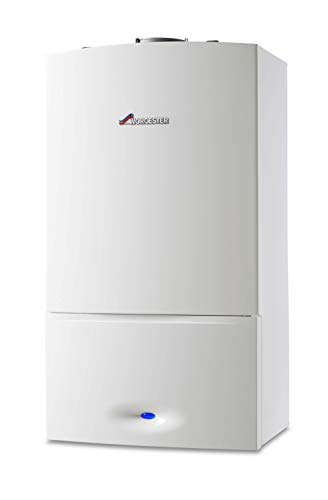
This is a wall mounted boiler that is suitable for small to medium-sized homes with one bathroom and is designed to fit within a standard kitchen cupboard
Life span of biomass boiler vs gas boiler
Biomass boilers will last for 20-25 years, whereas you will probably need to replace your gas boiler every 10 years. This again increases the cost for a gas heating system.
Although when it comes to biomass boilers, it's worth paying a little more upfront say the experts. “As we get into year ten, eleven and twelve, the shortcomings of cheaper biomass boilers will become apparent," notes Pete Downes, "with some having to be replaced because they are not economical to repair.
"In the past five or six years the majority of the boilers we fit are by Windhager of Austria. They started off at a domestic scale and have carried on in that size, whereas most other makes started with commercial boilers and gradually introduced domestic models. The boilers are well built, well designed and the clean burning technology of a basic machine is unrivalled, with so little particulate matter emitted that it’s counted as zero.”
If you are still weighing up which heating system to choose, its worth also exploring heat pump vs gas boiler as well as gas boiler vs electric boiler and combi vs system boiler. And if you're set on avoiding gas boilers all together, take a look at other gas boiler alternatives such as hydrogen boilers and hybrid heat pumps and hybrid solar panels.
Get the Homebuilding & Renovating Newsletter
Bring your dream home to life with expert advice, how to guides and design inspiration. Sign up for our newsletter and get two free tickets to a Homebuilding & Renovating Show near you.

Robin is a freelance journalist based in the South West of England, UK. He specialises in environmental issues, climate change and renewable energy, with other interests in transport and green motoring. He is a regular daily correspondent for a renewable energy website, writing news articles and interview pieces on all the main clean energy technologies. He has also written widely for numerous magazines on these topics, as well as writing white papers and web content.
